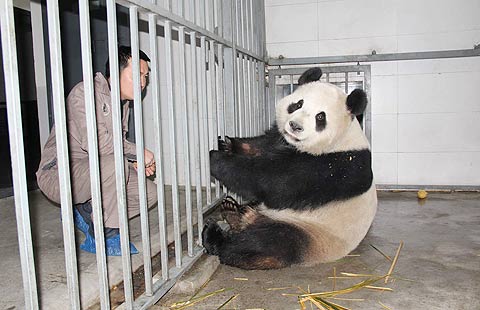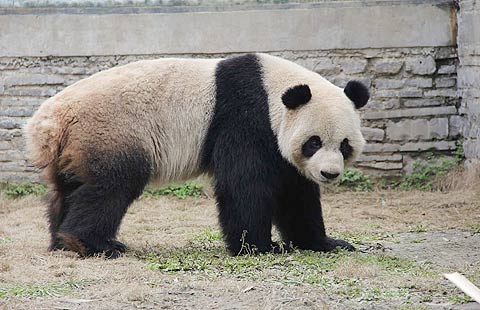Shanghai drinking water hit by salt tide
Updated: 2014-02-24 09:17
By Wang Hongyi in Shanghai (China Daily)
|
||||||||
Record intrusion of seawater affects about 2 million residents
Shanghai is taking measures to ensure water safety as the city experiences its longest-lasting salt tide in more than 20 years, affecting the drinking water of about 2 million residents.
A salt tide occurs, particularly during an astronomical high tide, when seawater rises and flows upstream into the lower-altitude course of a river, causing the river's water to become salty.
Shanghai, located at the mouth of the Yangtze River, is periodically affected by this phenomenon, especially in winter and spring when the water level on the Yangtze River is relatively low. But the duration of the salt tide this time is extremely long, officials said.
By Sunday, the salt tide intrusion had already lasted for 20 days, making it the longest since 1993, when the city built a reservoir. The previous longest-lasting salt tide on record occurred in February 2004, when it lasted for nine days and 19 hours, the city's water authorities said.
"Two salt tides have joined together, making it last for a longer time," said Chen Guoguang, an official at the Shanghai Water Supply Distribution and Monitoring Center.
A third salt tide is coming soon, and the whole tide is expected to end early next month, Chen told Shanghai Dragon TV.
The salt tide has affected the water quality in the waterways and reservoirs at the mouth of the Yangtze River and brought a shortage of fresh water.
Since Feb 3, the level of chloride density at the intake of Chenhang Reservoir and Qingcaosha Reservoir has consistently exceeded the national surface water standard of 250 mg per liter, over 3,000 mg per liter in peak time, according to Shanghai water authorities.
So far, fluctuations in chloride density have been seen in the water coming from the reservoirs, affecting the drinking water in the city's Baoshan, Putuo and Jiading districts, which include about 2 million residents.
"This, to some extent, may affect the water's taste, becoming salty and bitter, but it will not do too much harm to human health," said Chen.
Since Feb 4, Chenhang Reservoir and Qingcaosha Reservoir stopped collecting water from the Yangtze River because of the salt tide. The Qingcaosha Reservoir, which provides 70 percent of Shanghai's water, can sustain the city's consumption needs for one week.
However, the long-lasting salt tide has pushed the relatively smaller Chenhang Reservoir, originally designed for a 10-day supply, beyond its endurance capacity. The reservoir had to get more water from the nearby Baogang Reservoir. Chenhang Reservoir has reduced its daily water supply to 850,000 cubic meters per day.
Meanwhile, the city has established a comprehensive water supply plan to make the city's several waterworks facilities work together to more effectively allocate the water supply.
The city also reported to the Ministry of Water Resources, calling for support from the Three Gorges Reservoir, which has increased the flow of water from further upstream on the Yangtze River.
However, it might take time to see any effect, due to the limitations of water volume and the long distance it must travel, officials said.
The Shanghai water authority has closely monitored the water quality and has called on residents to conserve water.
wanghongyi@chinadaily.com.cn

 Sochi closes Olympics, clearing shadows of doubt
Sochi closes Olympics, clearing shadows of doubt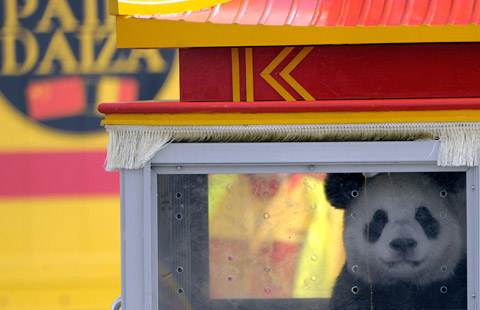
 China's giant pandas arrive at Belgian zoo
China's giant pandas arrive at Belgian zoo
 Ukrainian parliament dismisses president
Ukrainian parliament dismisses president
 Beijing upgrades haze alert from yellow to orange
Beijing upgrades haze alert from yellow to orange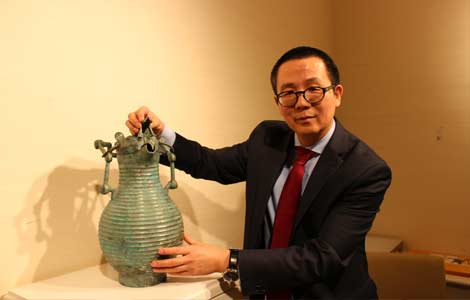
 Rare Zhou bronze wine vessel goes on the block
Rare Zhou bronze wine vessel goes on the block
 Reclaiming a heritage lost, stolen or sold
Reclaiming a heritage lost, stolen or sold
 US warns of airline shoe-bomb threat
US warns of airline shoe-bomb threat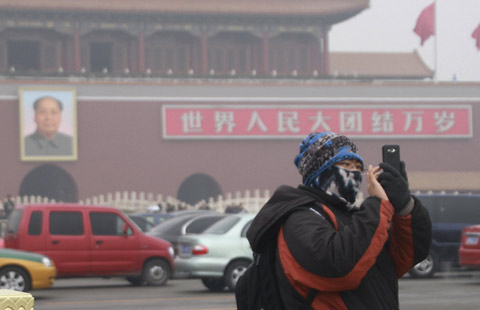
 Beijing issues 1st yellow alert for smog
Beijing issues 1st yellow alert for smog
Most Viewed
Editor's Picks

|

|

|

|

|

|
Today's Top News
Ukraine's new govt needs to seek balance: experts
Hospitals aim to prescribe more security
US political drama tells much about us
Think tank examines South China Sea
People shun outdoors amid smog
Gaokao gets accepted overseas
China urges US to correct mistakes on Tibet
9 punished for spreading flu rumor
US Weekly

|

|


